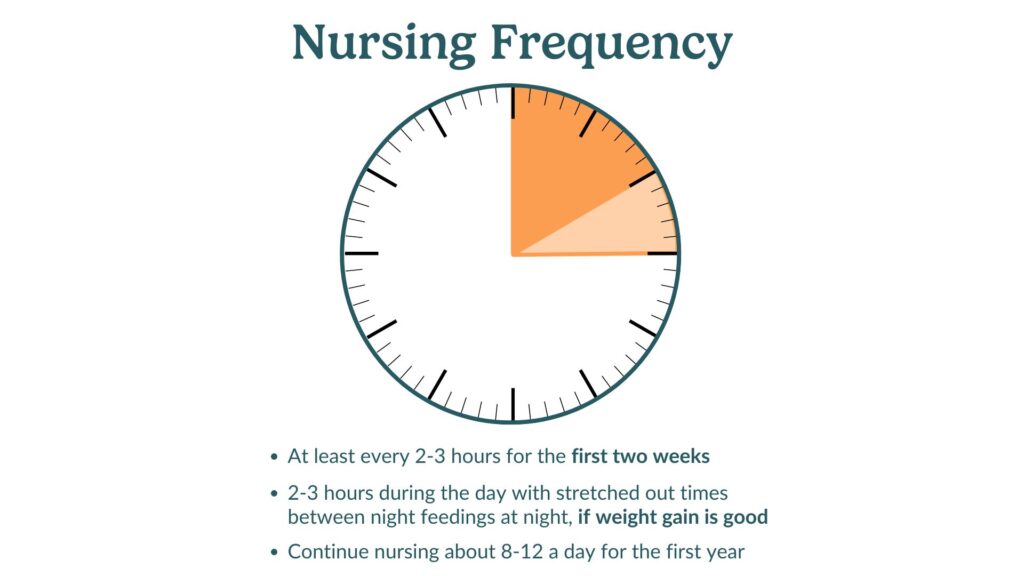nursing frequency

Nursing frequency
Nursing frequency refers to how often a baby breastfeeds. Understanding and managing nursing frequency is important for ensuring that your baby is getting enough nutrition and that your milk supply remains adequate. Babies' nursing patterns can vary widely, and frequent nursing is normal, especially in the early weeks and during growth spurts.
What to watch out for
It’s important to understand typical nursing frequencies and how to respond to your baby’s needs. Here are some considerations and tips:
- Newborns: In the first few weeks, newborns typically need to nurse 8-12 times per 24 hours. This frequent nursing helps establish your milk supply and ensures your baby is getting enough milk. Read more about on-demand breastfeeding.
- Growth spurts: During growth spurts, which can occur around 2-3 weeks, 6 weeks, and 3 months, your baby may nurse more frequently. This increased nursing helps boost your milk supply to meet their growing needs. Learn more about growth spurts.
- Cluster feeding: Your baby might have periods of cluster feeding, where they nurse more frequently for a few hours, usually in the evening. This is normal and helps increase milk supply.
To manage nursing frequency, consider these tips:
- Follow your baby’s cues: Feed your baby on demand, responding to signs of hunger such as rooting, sucking on hands, or fussiness. Learn about hunger cues.
- Ensure effective latching: A good latch helps ensure your baby is getting enough milk and can help prevent nipple pain. Read about breastfeeding positions.
- Keep track: Use a feeding log to track nursing sessions and ensure your baby is feeding frequently enough.
- Stay hydrated and nourished: Drink plenty of water and eat a balanced diet to support your milk production. Read about mama nutrition.
Physical limitations or health circumstances
Certain conditions can affect nursing frequency:
- Premature birth: Premature babies may have weaker sucking reflexes and may need more frequent, shorter nursing sessions.
- Jaundice: Babies with jaundice may be sleepier and harder to wake for feedings, requiring you to encourage more frequent nursing.
- Low milk supply: If you have concerns about low milk supply, frequent nursing can help stimulate production. Read about increasing milk supply.
Other terms
Understanding related terms can help you better manage nursing frequency and breastfeeding challenges:
- On-demand feeding: Feeding your baby whenever they show signs of hunger, rather than on a strict schedule.
- Latch: The way your baby attaches to your breast. A good latch helps ensure effective feeding.
- Cluster feeding: Periods when a baby nurses more frequently for a few hours, usually in the evening.
- Growth spurts: Times when your baby’s growth accelerates, leading to increased nursing frequency.
- Lactation consultant: A professional who can provide support and guidance on breastfeeding issues, including managing nursing frequency.


